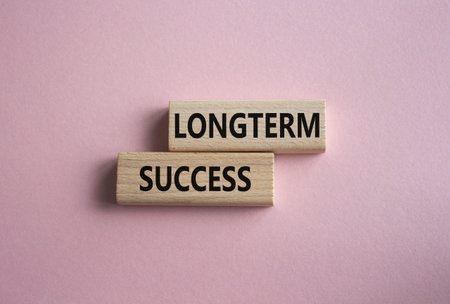1. Introduction: The American Dream and the Reality of Failure
In America, entrepreneurship is often seen as a pathway to the American Dream. From the high-tech campuses of Silicon Valley to the small businesses lining Main Street, countless people chase success through innovation and hard work. Stories of self-made millionaires and tech unicorns fill our news feeds, painting a picture that if you just have the right idea and hustle hard enough, anything is possible.
But there’s another side to this story—one that doesn’t make headlines nearly as often. For every household name like Apple or Starbucks, there are thousands of businesses that don’t make it. In fact, failure is a common part of the entrepreneurial journey in the U.S., yet it carries a heavy stigma. People often feel ashamed to talk about their setbacks, fearing it will hurt their reputation or future opportunities.
The Myth vs. The Reality
| Myth | Reality |
|---|---|
| If you fail, you weren’t cut out for business. | Most successful entrepreneurs have failed at least once before making it big. |
| Only tech geniuses succeed. | People from all walks of life build thriving businesses across America. |
| Failure means the end of your journey. | Many founders use failure as a stepping stone to future success. |
Why Is Failure Stigmatized?
American culture celebrates winners—sports champions, celebrity CEOs, viral startups. When someone fails in business, they might worry about being labeled a “loser” or not having what it takes. This pressure can make entrepreneurs hide their struggles, even though setbacks are incredibly common.
Changing the Narrative: Real Founders, Real Stories
Thankfully, more founders are starting to open up about their failures and what they’ve learned along the way. By sharing real stories from both Silicon Valley and local Main Streets, they’re helping others see that failure isn’t something to be feared or hidden. Instead, it’s part of building resilience—and sometimes, it’s exactly what leads to eventual success.
2. Silicon Valley: Failing Fast and Pivoting Hard
Silicon Valley is known as the heart of innovation, but it’s also a place where failure isn’t just accepted—it’s almost expected. Startup founders here know that the road to success is rarely a straight line. Instead, it’s full of twists, turns, and more than a few dead ends. What sets Silicon Valley apart is how entrepreneurs handle these setbacks: they fail fast, learn quickly, and pivot hard.
Embracing Failure as Part of the Process
In Silicon Valley, failing fast means testing ideas quickly, figuring out what doesn’t work, and moving on without wasting time or resources. This mindset encourages founders to take risks, experiment, and adapt. Here are some real stories from startup founders who turned their failures into stepping stones:
| Founder | Startup | Initial Failure | Pivot & Outcome |
|---|---|---|---|
| Drew Houston | Dropbox | Tried multiple file-sharing tools that didn’t scale | Pivoted to focus on seamless cloud storage; Dropbox now serves millions globally |
| Evan Williams | Odeo | Podcast platform lost relevance when Apple launched iTunes podcasts | Pivoted to create Twitter—now a global social media giant |
| Stewart Butterfield | Tiny Speck | Failed online game called Glitch didn’t catch on with users | Pivoted to build Slack—a workplace communication tool used worldwide |
The Power of Resilient Pivots
Pivots are at the core of Silicon Valley’s culture. When an idea doesn’t work out, teams regroup and use what they’ve learned to try something new—sometimes leading to unexpected breakthroughs. The key is resilience: not giving up after one setback but using each experience as fuel for the next attempt.
Lessons Learned from High-Paced Innovation
- Test Early and Often: Launch prototypes quickly to get real feedback.
- Don’t Get Attached: If an idea isn’t working, be willing to let it go.
- Focus on Solutions: Use failures as opportunities to find better answers.
- Support Each Other: Build a team culture where mistakes are seen as learning moments, not disasters.
The Takeaway from Silicon Valley Founders
If there’s one thing Silicon Valley teaches us, it’s that success often starts with failure. It’s not about getting it right the first time—it’s about moving fast, learning faster, and never being afraid to pivot toward something better.

3. Main Street Struggles: Grassroots Grit and Recovery
The Heartbeat of America: Small Business Owners
While Silicon Valley startups often grab the headlines, the true backbone of America is found on Main Street—those family-run diners, corner hardware stores, indie bookstores, and generations-old bakeries that dot towns and cities from coast to coast. These small business owners face their own unique battles: shrinking foot traffic, big-box competition, rising rents, and unexpected crises. Yet time and again, they show an inspiring ability to bounce back through resourcefulness and resilience.
Creative Comebacks: Real Stories from Main Street
| Business Type | Location | Setback Faced | Recovery Strategy |
|---|---|---|---|
| Family Diner | Pennsylvania | Lost customers during pandemic shutdowns | Started meal kits for curbside pickup; launched a “buy a meal for a neighbor” program |
| Bookstore | Oregon | Competing with online giants | Began hosting author events online; offered curated book subscription boxes for locals |
| Hardware Store | Iowa | Big-box store opened nearby | Focused on personalized service; introduced DIY workshops and local product lines |
| Lawn Care Business | Texas | Drought led to fewer jobs | Pivoted to xeriscaping services and water-saving landscaping advice for homeowners |
| Boutique Bakery | Georgia | Suffered equipment loss in a fire | Crowdfunded repairs; partnered with local cafes to sell pastries while rebuilding the shop |
Main Street’s Playbook: Lessons in Resilience
- Community Connections: Many mom-and-pop shops leaned into their loyal customer base, asking for feedback or rallying support through social media.
- Adaptability: Whether it was pivoting products, offering delivery, or moving services online, flexibility became key to survival.
- Collaboration: Local businesses teamed up—like a coffee shop selling baked goods from the bakery next door—to keep each other afloat.
Main Street’s stories prove that success isn’t just about flashy tech or viral growth—it’s about grit, heart, and a willingness to try something new when the odds are stacked against you. These real-life entrepreneurs remind us that every setback can be the start of a comeback—with a little creativity and a lot of community spirit.
4. The Human Side: Personal Toll and Community Support
When a business fails, the numbers only tell part of the story. Behind every closed shop or startup shutdown, there are real people facing real emotions. In America, whether in Silicon Valley’s high-stakes tech scene or on Main Street in a small town, business failure can hit hard. It’s not just about lost money—it’s about dreams put on hold and the emotional rollercoaster entrepreneurs ride.
The Emotional Impact of Failure
It’s common for entrepreneurs to feel disappointment, frustration, and even shame when their ventures don’t succeed. Many describe sleepless nights worrying about bills or letting down employees and family. Some feel isolated, believing they’re the only ones struggling. But the truth is, almost every successful entrepreneur has faced setbacks along the way.
Common Emotions Entrepreneurs Experience
| Emotion | What It Feels Like |
|---|---|
| Disappointment | Feeling let down after working so hard |
| Anxiety | Worrying about finances and future prospects |
| Guilt | Concern over affecting employees or investors |
| Isolation | Sensing no one understands what you’re going through |
| Hope | The drive to try again despite setbacks |
The Power of Support Networks
No entrepreneur should have to go it alone. Across the U.S., support networks make a huge difference when times get tough. Mentors offer advice based on their own failures and wins. Friends and family give encouragement and a listening ear. Local business groups or chambers of commerce often provide resources like free workshops, networking events, and even mental health support.
Types of Support Networks in the U.S.
- Mental Health Resources: Hotlines, counseling services, and online support groups help entrepreneurs manage stress.
- Peer Groups: Organizations like SCORE or local meetup groups connect business owners who can share stories and solutions.
- Mentorship Programs: Experienced entrepreneurs guide newcomers through rough patches.
- Community Events: Town halls and local fairs bring people together to brainstorm new ideas and partnerships.
Main Street Spirit: Communities Come Together
A uniquely American trait is how communities rally around their own. When a local diner closes its doors or a startup struggles after an economic downturn, neighbors often step up—organizing fundraisers, spreading the word about reopening plans, or simply checking in with words of encouragement. This spirit helps entrepreneurs find hope and practical help to start again.
How Communities Offer Help After Business Failure
| Type of Support | Examples in Action |
|---|---|
| Crowdfunding Campaigns | Raising money online for a relaunch or debt relief |
| Local Media Spotlights | Newspapers highlight comeback stories to inspire others |
| Loyal Customers Returning | Regulars show up on reopening day to support “their” place |
| Town Hall Meetings | Community leaders brainstorm ways to boost local businesses together |
The journey from Silicon Valley dreams to Main Street realities is never easy. But with emotional resilience and community backing, many American entrepreneurs find the strength to stand back up—often stronger than before.
5. Lessons Learned: Turning Setbacks Into Comebacks
How Real Entrepreneurs Turn Failure Into Fuel
From Silicon Valley tech founders to small-town shop owners on Main Street, every entrepreneur faces setbacks. But what separates those who bounce back from those who give up is how they respond to failure. Here’s what real business owners have learned about embracing mistakes and turning them into powerful comebacks.
Embrace Failure as a Learning Opportunity
Instead of seeing failure as the end, many successful entrepreneurs treat it as a classroom. They ask themselves, “What went wrong? What can I change next time?” This mindset shift helps them grow stronger after every setback.
Reframe Setbacks: It’s Not Personal
It’s easy to take business failures personally, but experienced founders recommend separating your self-worth from your results. Remember, even legends like Steve Jobs and Oprah Winfrey faced major failures before finding success.
Actionable Advice from Entrepreneurs
| Entrepreneur | Setback Faced | Lesson Learned | Advice for Others |
|---|---|---|---|
| Amy (Tech Startup, CA) | Product launch flopped | User feedback matters more than perfect code | “Talk to your customers early and often.” |
| Marcus (Coffee Shop Owner, TX) | Poor location choice hurt sales | Location research is key; passion alone isn’t enough | “Do your homework before signing a lease.” |
| Sara (Online Retailer, NY) | Website hack lost customer trust | Cybersecurity cant be an afterthought | “Invest in security from day one.” |
| Luis (App Developer, FL) | Ran out of funding mid-project | Cash flow planning is crucial for survival | “Always have a backup plan for financing.” |
Practical Steps to Turn Setbacks Into Success
- Acknowledge the setback: Don’t ignore problems. Face them head-on.
- Gather honest feedback: Ask team members, mentors, and customers what went wrong.
- Create a recovery plan: List specific actions you can take to fix mistakes or pivot your strategy.
- Share your story: Being open about struggles builds trust with employees and customers alike.
- Celebrate progress: Every step forward counts—even if it’s small.
Your Comeback Starts Now
The road from Silicon Valley boardrooms to Main Street storefronts is paved with stories of resilience. By viewing setbacks as stepping stones instead of stumbling blocks, entrepreneurs across America are proving that failure isn’t the end—it’s just the beginning of something better.


